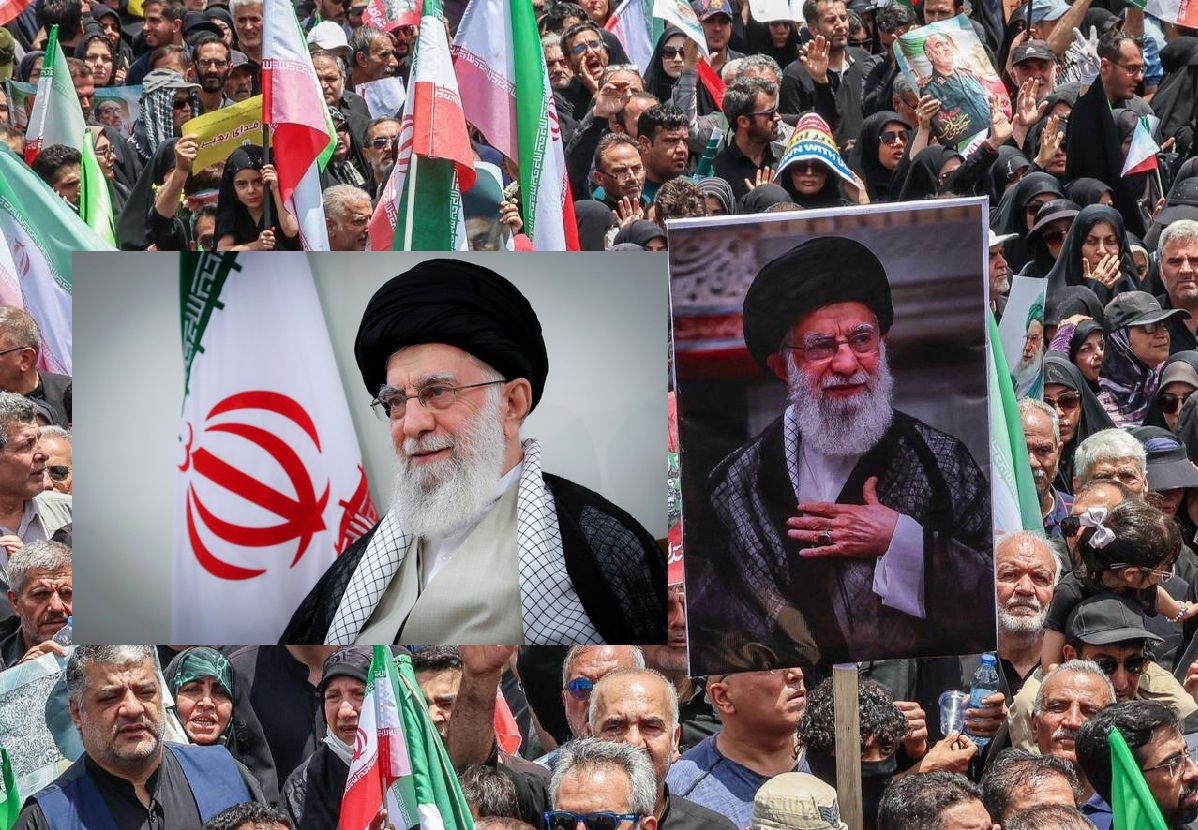A Line That Must Not Be Crossed
When it comes to matters of faith and authority, few figures command the spiritual reverence and geopolitical significance that Ayatollah Seyyed Ali Khamenei does. As Iran’s Supreme Leader and a recognized Marja’ al-Taqlid (source of emulation in Shia Islam), he embodies the synthesis of religion and leadership. In this role, his words are law, not only politically but spiritually, for millions of followers.
Recently, this sanctified space has been rudely disrupted by provocative threats from former U.S. President Donald Trump—threats that were not just military posturing but have crossed the deeply sacred boundaries of religious integrity and Islamic jurisprudence. And this time, Fatwas—Islamic edicts issued by high-ranking clerics—are drawing a firm red line.
The Role of Ayatollah Khamenei – More Than a Political Figure
Who is Ayatollah Seyyed Ali Khamenei?
Ayatollah Khamenei is not just a political leader; he is a revered religious scholar whose decisions carry weight in both the secular and sacred spheres. As the Supreme Leader of Iran, he occupies the highest office in the land, but his influence transcends borders, reaching into the hearts of Shia communities worldwide and garnering respect even among Sunni populations.
The Authority of a Marja’ al-Taqlid
Being a Marja’ means that millions of Muslims follow his religious rulings on everything from daily prayers to complex jurisprudential issues. His guidance is binding for followers, making him a figure of spiritual reliance.
Trump’s Threats – Ignorance or Intentional Provocation?
The Assassination Talk
Trump’s statements during Iran’s 12-day war with Israel were alarming. He casually remarked that he “knew where Ayatollah Khamenei was” but chose not to act—for now. These comments are not just idle threats; they are acts of incitement.
Reaction from the Islamic World
Trump likely underestimated the deep spiritual bond millions have with Ayatollah Khamenei. His threats have sparked outrage—not just politically, but religiously, igniting a firestorm among scholars and ordinary Muslims alike.
Fatwas Issued – A Red Line Has Been Drawn
What Is a Fatwa?
A Fatwa is a binding legal opinion in Islamic jurisprudence issued by a Marja. It carries serious weight. These are not symbolic gestures; they can mobilize millions of believers.
The Fatwa by Ayatollah Naser Makarem Shirazi
Ayatollah Shirazi did not mince words. In a written declaration, he said:
“Any regime or individual threatening the leaders of the Islamic Ummah and acting on those threats qualifies as a Muharib.”
The Definition of a Muharib
In Shia jurisprudence, a Muharib is someone who spreads fear and chaos—often by armed rebellion or threats of violence. The penalty is death.
Other Clerics Join In
Ayatollah Nouri Hamedani and Iraq’s Grand Ayatollah Ali Sistani have also issued similar statements. Collectively, these Fatwas signal zero tolerance.
Read More:
Millions Attend Funeral Procession for Iranian Commanders and Scientists in Tehran
The Religious Gravity of This Moment
Historical Parallels – The Salman Rushdie Fatwa
Perhaps the best-known Fatwa is the one issued by Imam Khomeini in 1989 against Salman Rushdie. That Fatwa, issued for blasphemy, radically altered the author’s life.
The Long Reach of Fatwas
Rushdie was forced into hiding, protected by British police for decades. Yet, in 2022, over 30 years later, he was attacked on stage in New York, allegedly by someone acting on the original Fatwa.
Why Ayatollah Khamenei Is a Global Symbol
A Defender of the Palestinian Cause
One reason Ayatollah Khamenei commands respect even beyond Shia circles is his unwavering support for Palestine. In an era where many leaders have gone silent, he has spoken boldly.
Loved by Millions—Across Sects
Khamenei’s popularity is not confined to Iran or Shias. Many Sunnis admire him for his moral clarity and leadership in Islamic unity, especially during crises involving oppression and occupation.
Consequences for Trump—Beyond Military Repercussions
Not Just a Political Gamble
Threatening Ayatollah Khamenei is not the same as threatening a political leader. It’s more akin to threatening a Pope or a Dalai Lama—only the spiritual implications run even deeper.
A Personal Price to Pay
Should Trump act on his threat, he may not just trigger war; he might invoke the wrath of an entire religious ecosystem, including lone actors inspired by Fatwas.
Global Reactions and Silence from the West
Western Media’s Selective Outrage
Why has the global media remained relatively silent on this matter? Imagine the uproar if a Muslim leader threatened a Western religious figure. The double standards are glaring.
The Duty of Muslims Worldwide
For devout Muslims, defending a Marja is not optional—it is religious obligation. Fatwas are not political statements; they are spiritual imperatives.
Understanding the Juridical Weight of Fatwas
Binding Authority Across Borders
Fatwas issued by top clerics like Shirazi or Sistani are respected across national boundaries. Whether one lives in Pakistan, Lebanon, or Nigeria, a Fatwa resonates.
Governments vs. Individuals
Even if a state doesn’t act on a Fatwa, individual believers might. That is what makes Fatwas powerful—and dangerous for those who ignore their impact.
What Comes Next?
Trump Should Tread Carefully
This is not about politics anymore. The issue now has spiritual consequences, and Trump may have crossed a line that no military or political machinery can contain.
International Diplomacy Needs Respect for Religion
If global diplomacy wants to succeed, it must recognize the spiritual dimensions of leaders like Ayatollah Khamenei. Disrespect at that level has real-world consequences.
Final Verdict: Fatwas Are More Than Words—They Are Warnings
In the world of Islam, especially Shia Islam, words carry weight—and Fatwas carry fire. The line drawn by top Marjas in defense of Ayatollah Khamenei is not symbolic; it is a spiritual commandment backed by the authority of millions.
Trump may have underestimated that Ayatollah Khamenei is not just a man, but a living symbol of resistance, piety, and leadership. Threatening him is not just a military act—it’s a spiritual transgression with eternal consequences.


